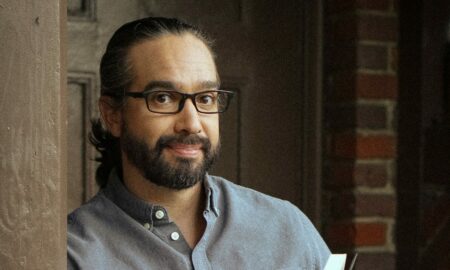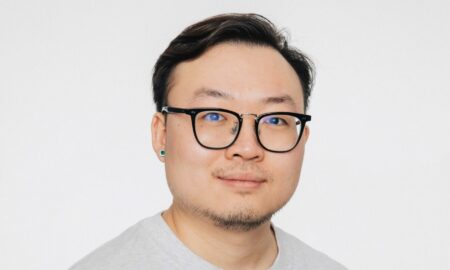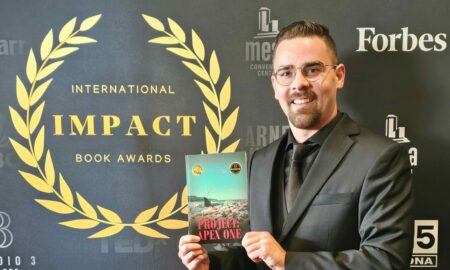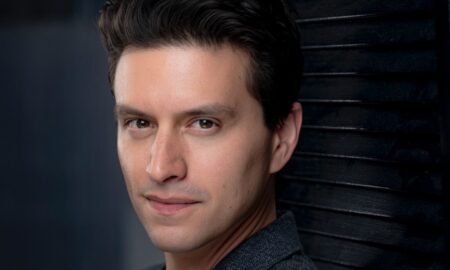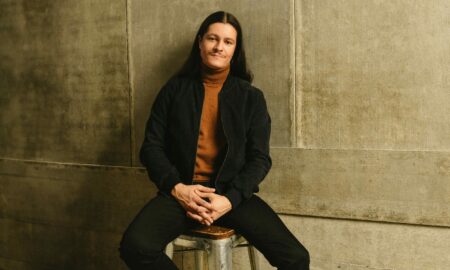

Today we’d like to introduce you to Abby Mahler.
Hi Abby, please kick things off for us with an introduction to yourself and your story:
I’ve worn many hats over the last few years, but all of them brought me to where I am now: a photographer with lupus, who’s spent more than a year now safely quarantined, ready to see what the other side of this pandemic looks like. I am an LA local, born and raised in Santa Monica, where I began taking photos when I was at John Adams and SAMOHI. I started with a little point-and-shoot, just for fun, with my friends, then purchased my first DSLR when I was in high school. I continued documenting my personal life as I made my way to Bennington College in Vermont, where I studied Conflict Resolution and Human Behavior; I like to consider why humans treat each other and ourselves, the way we do, and how places where we clash originate and resolve. It’s an intersection that has heavily informed my daily life during the pandemic, even more so than it did before. While I was at Bennington, I also served as the Student Life Photographer. The school is very small, so the way I got the job at all was because someone in the administration had seen photos I’d taken of my friends and thought I would do well. I think I did. I did a number of internships in the realm of Conflict Resolution, primarily as a mediator, but upon my graduation from Bennington, I placed my focus on my health.
As I was growing up, I had unexplained medical events: my left knee giving out in 7th grade, with the right following a few years later, and my hands beginning to shake and lose dexterity when I was a senior in high school, among other inexplicable experiences. I had seen a series of physicians, all of whom found my tests and scans to be normal. My overall health worsened the older I got, though no “why” ever materialized. So after I graduated I was relieved to learn I have lupus, an chronic disease that most may be familiar with from the television show “House MD,” where the eponymous doctor is known for the line, “It’s never lupus.” Well, this time it was. Lupus is an autoimmune disease, which means my immune system attacks my own healthy tissue, the way a normal immune system attacks bacteria or viruses. Every person with lupus experiences it differently; in me for now, it means chronic pain in joints and muscles, skin rashes, sensitivity to UV light, and issues with circulation, among other symptoms. A diagnosis was exciting though – it was a chance to understand what was wrong with me and reflect on my life through a lens of this disease that had impacted my experiences without my knowledge.
Dedicating so much time to my health did mean that I took a path that I may not otherwise have: I began a day job scooping ice cream, as well as taking photography work in the time left over. I photographed anything I could get my hands on: college parties, proposals, weddings, corporate events, graduates, you name it– and it was a blast. Every day was different. Some of the highlights include a destination wedding in Mexico City, working as a Social Media Coordinator for Santa Monica’s Rustic Canyon Family of restaurants, as well as publications in LA Weekly, Thrillist, C Magazine, and right here on VoyageLA! I also serve as the main photographer for the local Rocky Horror cast, Sins o’ the Flesh, where I have been a cast member since I was in high school. And, while I still faced challenges with my health, I had the flexibility to meet with doctors, and most importantly, rest in a way I don’t think I actually ever had before.
This brings us to 2020. Due to my health, I took disability leave and began isolating and wearing a mask pretty early, however I couldn’t have imagined what would come next. Early in the year, there were reports out of China that the drug hydroxychloroquine was being used for experimental treatment in COVID-19. Hydroxychloroquine is the main medication I take every day, twice a day, to treat my lupus. I had noticed this information posted on Reddit before COVID got serious in the US and kind of joked about it. Like “Oh, guess I’m gonna live forever haha!” Then Donald Trump spoke about the drug as if it were a cure-all, which is when things really took off. Prescriptions spiked to unprecedented levels, causing major shortages of hydroxychloroquine for autoimmune people not only in the US but around the world. Even now, months later, I still hear stories from people experiencing issues with supply. Shortages mean are a bad sign for chronically ill patients who rely on the drug daily; millions were forced to ration or go without this essential medication. Taking less than your allotted dose can lead to flares of the underlying autoimmune disease, leaving people already at-risk for serious COVID even further susceptible.
Since I was out of work, I had nothing but time to research this. I read literally everything I could possibly get my hands on and documented the media narrative in a Google Doc to ensure I didn’t lose the thread. I collaborated with strangers I met online, some local to southern California as well, others across the world, recording the debacle as it unfolded. In the process, I began a TikTok account to share the information (which has now grown to over 30k followers), spoke to multiple journalists, and appeared on our local NBC affiliate station to speak about the lupus patient perspective on this nightmare. I used my personal social media platforms to push posts further than I’d had them go before, hoping that it would make some difference. The science for using hydroxychloroquine in COVID was weak to begin with, but as time went on, poor reporting made new data even more confusing the public. States and the federal government stockpiled the drug, despite scientific disagreement on the usefulness and major outcry from disabled people. Now, cut to January 6th: the country watches live as an insurrection unfolds in our Capitol building. In the melee, one of my collaborators spotted a familiar face: Dr. Simone Gold, a lawyer and concierge doctor from Los Angeles. Prior to her role in the insurrection, she was best known for her recent antics as the face of “America’s Frontline Doctors”, a disinformation group spreading anti-vax, anti-mask, and pro-hydroxychloroquine propaganda. I had the honor, nay the pleasure, of joining my collaborators in reporting her to the FBI, by whom she was ultimately arrested.
While news storm has since more or less left hydroxychloroquine behind, you can still find it being touted by right-wing pundits, including Gold’s group, the “Frontline Doctors”. Stockpiles still exist across the country (mostly notably in Oklahoma), and some patients are still experiencing issues with their prescriptions. Others are dealing with the impact to their health that having to go without medication resulted in; controlling an autoimmune disease can feel like taking shots in the dark, hoping something works, and when it does, sticking to it as best you can. Hydroxychloroquine is one of the most widely used, cheapest, and most stable drugs for autoimmune patients, so watching people like me across the world share this bizarre experience has been life-altering. It impressed upon me how delicate our situations really are– so reliant on global supply chains– and how easily even sub-par information can shift the fates of entire vulnerable populations.
In March of 2021, it spurred me to join the Lupus Foundation of America in their yearly advocacy summit. Usually this takes place in person in Washington DC, but this year it was remote. I met with my Congressional representatives’ offices’ from the comfort of my bedroom, on Zoom, to advocate for greater funding allocations to lupus research, and to impress upon those who lead us how deeply strange the pandemic was for us specifically.
Indeed, this entire debacle was surreal; I am glad I was able to speak out about it, and hopefully to make a difference, even if it was just teaching someone something new on TikTok.
Would you say it’s been a smooth road, and if not what are some of the biggest challenges you’ve faced along the way?
It hasn’t been smooth, of course. Chronic illness is always a barrier in any job. Since lupus has few permanent physical markers, I have found myself in the strange position of choosing whether to disclose my illness to employers or clients on multiple occasions– it is disclosure: I rarely “look” sick, whatever that means. Once people see me as sick or disabled, they may treat me differently, or I may lose work because of it. Now that I have been so public about my disease during covid-19, I’m not sure how this will change things for me. I hope though, it can be a benefit. My disease means I am extremely conscious of others, especially right now during the pandemic. I take major safety precautions and try to avoid pushing myself, which can backfire and leave me down for the count for days. Indeed, I have found that when I shared, I have made some truly wonderful, deep connections that I would not otherwise have made. This has been especially true for my hydroxychloroquine project, which would not have existed at all if I weren’t sick.
Alright, so let’s switch gears a bit and talk business. What should we know about your work?
I am a self-taught photographer. I shoot both digital and film, and am likely known best for my candid photos. I like to be a fly on the wall, eyes peeled for where the action is. I find my education in conflict resolution and human behavior has given me an ability to read people very well–you have to be conscious of people’s demeanor when you’re trying to resolve their conflicts, and likewise when you’re trying to take their photograph. I think I have captured moments I wouldn’t otherwise have because I could predict the subject’s behavior. I think what I am most proud of, however, is my range. I don’t feel I’m locked into a certain style, and that flexibility has meant I have created photos I may have limited myself from creating. Again, I feel like this was exemplified in the project I undertook during quarantine– why limit myself? Sure, I’m not a journalist, but I had an instinct something was wrong, and it was. I come to my work with an open mind, ready to learn, collaborate, and make something we may never have even dreamed of when we began.
What are your plans for the future?
My plans for the future are simply to survive this pandemic. I hope to look back on this time and feel that I made the best decisions I could have, that I helped as many people as I was able while still staying safe myself. I’ve gotten a lot of people asking in TikTok comments if I’m going to write a book or make a documentary out of my hydroxychloroquine project. I don’t know what the world will look like on the other side of this, but staying flexible, and saying “yes” to exciting, and in some cases daunting opportunities has gotten me this far. I look forward to whatever’s ahead, camera in hand.
Contact Info:
- Email: [email protected]
- Website: abbymahler.com
- Instagram: instagram.com/abbymahlerphoto
- Twitter: twitter.com/babs_zone
- Other: instagram.com/piinball_wiitch
tiktok account tiktok.com/@babs_zone








Image Credits:
All photographs were taken by me, the first graphic is from NBCLA.














